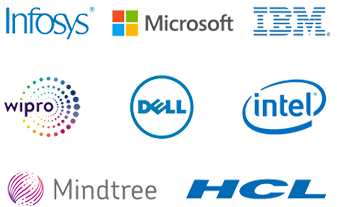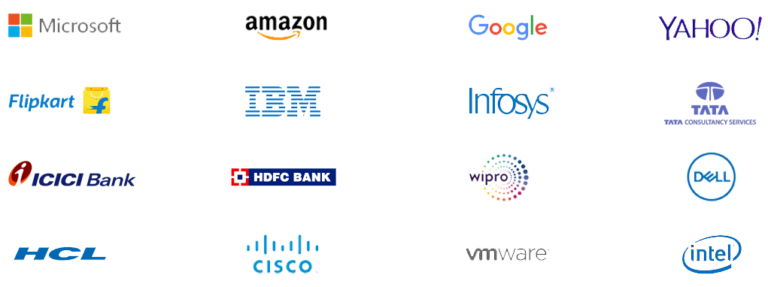Data Science & Machine Learning

About Data Science & Machine Learning
This Data Science with Machine Learning certification course led by All Solutions India Technologies aims at helping you master all the l skills that are crucial in the field of Data Science with Machine Learning In this course, you will learn how to utilize python and python based functionalities for data analytical purposes. As well as work with real-world Kickstarter data to assess what makes a successful project via hands-on practice.
Key Features of Data Science & Machine Learning

400 Hrs of LIVE online training

LIVE mentoring & Doubt clarification sessions

100+ lab assignments

25 Hrs aptitude and logical reasoning

Interview preparation & Placement assistance

100% Money Back Guarantee
No questions asked refund*
Training Options
Live-Online
- Live-Online Instructor Led Training
- 100+ lab assignments & Quizzes
- 24/7 Lab access on All Solutions India Cloud Lab
- Labs Designed & Mentorship support by Industry Experts
- 5 capstone projects
- Live-Online sessions with Industry Experts & Subject Matter
- Expert from All Solutions India
- Access to Recorded Session of Live-Online Classes available 24/7
- Industry Recognized Course Completion Certificate
- Interview Preparation & Placement Support
Classroom Based
- In-Person Classroom based Training conducted by Subject
- Matter Expert & Facilitated by Technical
- Flexibility to attend classes at any of our 50+ Centers PAN India
- Hands-on experience at our state-of-the-art Lab
- 100+ lab assignments & Quizzes
- 24/7 Lab access on All Solutions India Cloud Lab
- Labs Designed & Mentorship support by Industry Experts
- 5 Capstone & 1 real-world project
- Exclusive sessions with Industry & Subject Matter Expert
- Access to Recorded Session of Live-Online Classes available 24/7
- Industry Recognized Course Completion Certificate
- Interview Preparation & Placement Support
- Access to Campus Placement drives
- 1 year access to our LMS
Need guidance?

Talk to our experts 24/7 on
+91 7838329259
Benefits of Data Science & Machine Learning Course

DATA ANALYST
ANNUAL SALARY

HIRING COMPANIES
Course Curriculum
Advance AI
- Encoder vs Decoder
- Difference with PCA
- KL Divergence
- Variable Auto Encoders
- Generators
- Discriminator
- DCGAN
- Generative Adversarial Text to Image Synthesis
- Style GAN
- Soft and Hard Attention
- Local and Global attention
- Monotonic Alignment and Predictive Alignment
- Multi headed Attention
- Transformers
Deep LearningAI
- Perceptron and relate it with Logistic Regression
- Multiple layer Neural network
- Similarities and Differences with Basic ML
- Forward Propagation
- Back Propagation Algorithm
- Vanishing Gradient and Exploding Gradient
- Non Linearity
- Sigmoid / Tanh Function
- Relu /Leaky Relu /Gelu
- Softmax Function
- Gradient Descent
- Stochastic Gradient Descent
- Momentum
- AdaGrad
- RMSProp
- Adam/ Nadam
- Tensors
- Session, Placeholders and Variables
- Hands on with Tensorflow
- Graphs using Tensorboard
- Why Keras
- Sequential vs Functional
- Model Creation
- Difference between Tensorflow and Pytorch
- Autograd
- Graphs
- Control Flow and Weight Sharing
- Feed Forward Networks
- Fully Connected Networks
- Recurrent Neural Networks
- Convolutional Networks
- OpenCV
- Convolution/ Filters/ Pooling
- Back Propogation in CNN
- Types Of CNN
- FastRCNN, YOLO
- ImageNet
- Need of Transfer Learning
- Freezing of Layers
- Reusing of Structure
- LeNet/ Alexnet
- VGG 16/ 19
- ResNet 34/101
- Inception and Googlenet
- Classical RNN
- Vanishing Gradient
- Exploding Gradient
- LSTM/GRU
- Bidirectional RNN
- Lemmatization/ Stemming
- Embedding
- Vectorization
- Glove
- Nltk/Spacy
ML/AIOps and Big Data
- Installation
- All Necessary Commands
- Permissions and Ownership
- Tools and Packages
- Docker Configuration
- Docker Files
- Continer Linking
- Kubernetes Architecture
- Kubectl Commands
- Url Mapping
- Function / Class based Views
- ORM
- Admin
- AWS Server
- S3 Buckets
- Sagemaker
- Build Train Deploy
- Life Cycle
- Local Repository
- Add / Commit / Push / Pull
- Merge
- Stash
Advance Machine Learning
- Problems with Large Features
- Why penalty is inducted
- Difference between L1 and L2
- Cost Function
- Logistic regression vs Linear Regression
- Log Odds / Logit / Sigmoid Function
- Optimization and Log Loss
- Maximum Likelihood Estimation
- Support Vectors and Hyperplanes
- Hard margin vs Soft margin
- Kernel Trick in non-Linear SVM
- SVM Parameter Tuning
- Optimization
- Hinge Loss and Combined Loss
- Lag Values
- AutoRegression/ AutoCorrelation
- Stationarity
- ACF vs PACF Plots
- Smoothing Time Series
- Dicky Fuller Test
- AR/ MA/ ARIMA/ SARIMA
- Holdout Validation
- K-fold cross Validation
- Stratified Kfold
- Cross_val_score
- GridSearchCV
- RandomizedSearchCV
Regression Based evaluation
- MSE/MAE
- R2/Adjusted R2
Classification Based evaluation
- Confusion Matrix
- Precision/ Sensitivity/ Specificity/ F1 Score
- AUC/ ROC
- AIC and BIC
- Random Forest
- AdaBoost
- Gradient Boosting
- XGBoost
- Blending/ Stacking
- Clustering
- Anomaly Detection
- Association Rules
- Dimensional Reduction
- KMeans
- Heirarchical
- DBScan
- Spectral Clustering
- GMM
- Eigen Values and Eigen Vectors
- Principal Component
- PCA
- Advance Dimension Reduction Techniques
Machine Learning
- Difference Between AI, ML and DL
- Applications of Machine Learning
- Categorization of Machine Learning
- Supervised / Unsupervised / Semi Supervised
- Parametric vs Non Parametric
- Geometric/ Rule Based/ Gaussian
- Flow Operation (Pipelining)
- Sklearn Usage
- Null Values Imputation
- Outlier Detection
- Encoding
- Label Encoder
- Ordinal Encoding
- One Hot Encoding
- Scaling
- Binarizer
- MinMaxScaling
- Normalizer (L1 and L2)
- StandardScaler
- Imbalance Dataset
- Univariate/ Bivariate/ Multivariate Analysis
- Filter Methods
- Wrapper Methods
- Embedding
- Dimensional Reduction
- Data Cleaning
- Train/ Test Split
- Basic Modeling
- Bias and Variance
- Evaluation Metrics
- Cross validation
- Criteria to Select Models
- Ensembling
- Assumptions
- Introduction to Linear Regression
- Predictions using Dot product
- Multiple Linear Regression
- Cost Function (Sum of Square Error)
- Gradient Descent based approach
- Introduction to Polynomial Regression
- When to use Polynomial regression
- Evaluation based on RMSE/ R2
- Introduction to Decision tree
- Decision Tree Classification / Regression
- Types of Decision Tree techniques (ID3 / CART)
- Optimization and Pruning
- Introduction to KNN algorithm
- KNN Classifier vs Regressor
- How to select the best k
- Conditional Probability and Bayes Theorem
- Naive Bayes
- Burnoulli / Multinomial
- Gaussian Implementation
Business Analytics and Intelligence
- Measures of Central Tendency
- Distributions
- PDF/ CDF
- Central Limit Theorem
- Parametric and non parametric Tests
- Z test/ T test
- Chi2 test
- p-Value
- F test
- One way ANOVA, Two Way ANOVA
- MANOVA
- Visualization
- Dashboard
- DAX
- Measures
- M Language
- Power Query
- R Studio
- Basic Data Structures in R
- Vectors and DataFrames
- Distributions
- Regression Analysis
- Classification
Python and LibrariesAnalytics and Intelligence
- Strings and Basic Data Structures
- Strings
- List and Tuples
- Sets and Dictionaries
- Control
- Statements
- Conditions
- While and For Loop
- Adv Loops
- Functions
- Basic Functions
- Nested Functions
- Recursive Functions
- Object Oriented Programming
- Basics of OOPS
- Inheritance
- Polymorphism
- Composition
- Linked Lists
- Trees
- Stacks and Queues
- Graphs
- Searching
- Sorting
- Basic Numpy
- Indexing/ Slicing
- Broadcasting
- Appending/ Inserting on Axis
- Mathematical and Statistical operations
- Advance Numpy
- Sort/ Conditions
- Transpose operations
- Joining/ Splitting
- Linear Algebra
- Introduction
- Data Extraction
- Series/ DataFrame Creations
- Indexing and Slicing
- Grouping and Merging
- Conditions/ Grouping/ Imputation
- Append/ Concat/ Merge/ Join
- DateTime Functionalities and Resampling
- Window Functions
- Excel and Sql Functions
- Pivot table/ Crosstab/ Melt
- Sql with Pandas
- Scatterplots/ Barplots/ Histograms/ Density Plots
- 3D plots
- Boxplotting and Outlier Detection
- Visualizing Linear Relationships
- Customization of Matplotlib
- Subplotting
- Seaborn and Plotly
Request more information?
If you have any questions, please don’t hesitate to ask, fill the enquiry form or call +91 7838329259

Please, fill out the Enquiry Form
Form fields marked with a red asterisk * are required.
Supporting Enterprises Around the Globe
Our programs are designed to give you the skills you need to be successful in your career.

GET IN TOUCH WITH OUR EXPERTS
Let us know your areas of interest so that we can serve you better.
*Refund Policy For Online Courses
At All Solutions India, we value the trust of our students immensely. If you feel that a course does not meet your expectations, we offer a 7-day money-back guarantee. Just send us a refund request via email within 7 days of purchase and we will refund 100% of your payment, no questions asked!
To claim a refund, kindly follow the below procedure:
- Drop an email on info@allsolutionsindia.com with a subject “Online course refund | Course name”. (Please do not forget to send it from the registered email id)
- Give a valid reason for the refund. [for our internal purpose only]
- Ensure that the email is received within seven days of batch start date. [Example: if batch starts on 28 th Oct’20, you should send the refund email on or before 04th Nov’20 midnight]
- Refund amount calculation: 100% refund of what you have paid.
- Refund will be processed within 10 working days of receiving the refund email.

